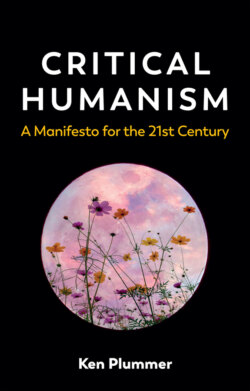Читать книгу Critical Humanism - Ken Plummer - Страница 23
Humanism as rationality and science
ОглавлениеScience has long searched for a rational and objectively ‘true’ account of what it is to be a human being in a wider universe. From Chinese and Arabic Islamic science, through Leonardo, Galileo and Newton to Hubble and Hawkins, the gradual growth of scientific ideas about the human species has told us much. And advances have rapidly accelerated in recent years. Quantum revolutions, biomolecular revolutions and digital revolutions bring key issues for humanity. A biomolecular revolution, for example, raises issues of designer babies, cloning, gene editing, the extension of life and the problems of eugenics. A digital revolution brings widespread surveillance, data selves, fake imaging and an algorithmic social order. Space science develops plans for sustainable living in outer space. Overall, science is now assembling a very detailed mapping of just what it might mean to be a member of the human species in a future universe of infinite time-space. It is at work everywhere enhancing and challenging what we know about humanity. But wondrous as it is, problems surely come with it.
Charles Darwin’s influential work (even if still rejected by significant numbers of the world’s population31) sets the major evolutionary frame of thinking for science around the emergence of humanity and the universe. His work has been central not only in understanding the evolution of the human species, but also in showing how it connects to all other life forms. We are understanding more and more about our complex relationship with earth and sea, life and animals – no longer can we see ourselves as the supreme or exceptional life form.
Consider just a few recent achievements. Geology, palaeontology and architectural history have mapped out the phases of our historical existence. The study of rock formations from the distant past shows the rise and collapse of different civilizations and helps create an awareness of just how short our own human existence here has been. We now understand something of the history of world catastrophes: there have been five great extinctions on this planet; an Ice Age preceded us. And this has enabled us to designate more clearly the epochs in which we live: the Holocene (coming after the Ice Age) and the Anthropocene, a recently designated era which demonstrates how we have played an active role in destroying our universe. And all this has led to the suggestion of a potential coming of a sixth extinction.32
Biotechnology has also played a key role in redefining humanity. These technologies invade the body and being of humans, working to reconstitute what previously existed. Here we have a world of organ transplants, test-tube babies, altered foetuses, human genomics and gene editing, cryonics, slow ageing – and the Human Genome Project. We can now trace our personal DNA.33
Likewise, astrophysics, astrobiology and planetary science now provide ‘objective’ photomapping of the vast and infinite planetary worlds in which humanity dwells. With Google Maps, we have become the little animal that can map out our positions in an advanced world of astronomical objects (such as planets and stars) and cosmic time. As Brian Cox says: ‘The Sun is one star amongst 400 hundred billion in the Milky Way Galaxy, itself just one galaxy amongst 350 billion in the observable universe.’34 Meanwhile the futurist physicist Michio Kaku charts our futures to live sustainability in this outer space.35
Our little human being now enters a world full of deep, disturbing facts about the pluriverse. We are able to look at ourselves reflected back from the moon. And we can even, if we have the money, make plans to travel to it! We can sense that the whole planet on which we live is just a small part of the infinity of time and space: and our own species is but the tiniest of species, both significant and insignificant. Insignificant in that we are the merest of blips in cosmic time and space; significant in that we are the only animal we know that has the necessary consciousness to explore this multiverse. We have become a global humanity, a cosmic human species. And we can reflect on it.36
Finally, there is the rise of AI (artificial intelligence) and ‘Humanity 2.0’.37 Already, we start to see the emergence of a robotic life, one that is radically transforming health, transport, work, governance and war. We are only at the beginning of this latest stage of human life, which may well lead to a super intelligence and ‘singularity’: the machine that will take over our lives, helping create a serious risk to our humanity and our existence. Extraordinarily big claims are being made for this. Mildly, it forecasts the ‘enhancement of humanity’ as never before; more extravagantly, we face the ‘the end of the human species’. At the very least, we may enter a world where the human being is significantly devalued.
